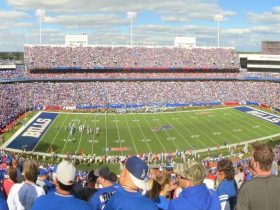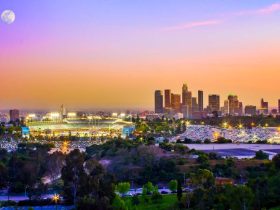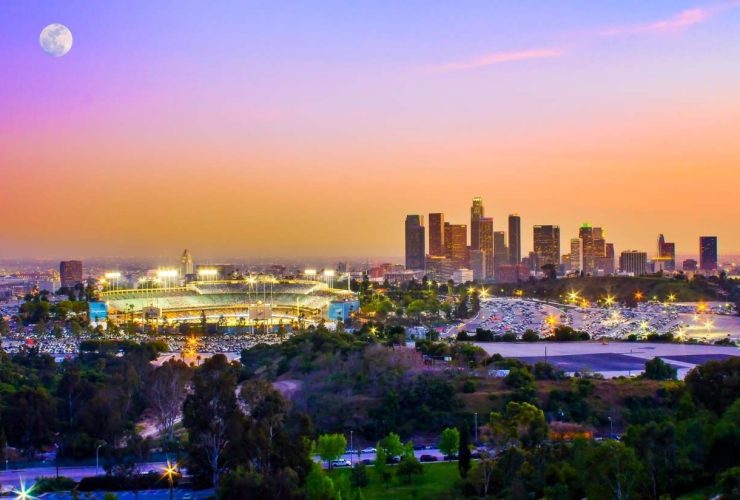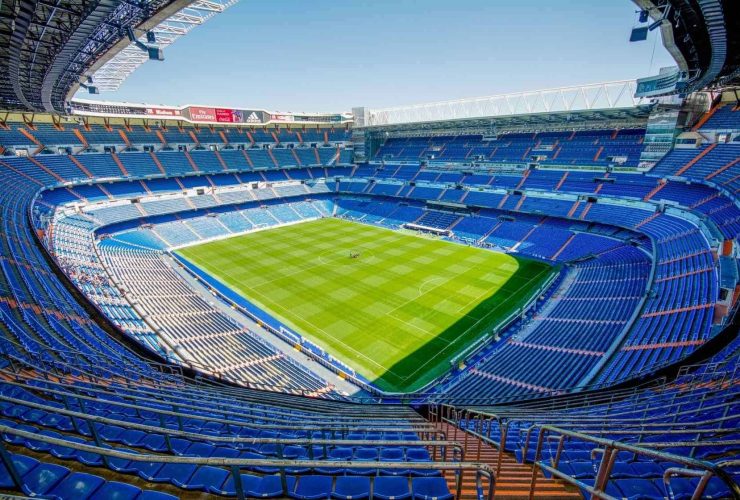For the first time in history, Brazil will host the FIFA Women’s World Cup in 2027, bringing the world’s premier women’s football tournament to South America.
From the iconic beaches of Rio de Janeiro to the vibrant streets of Salvador and the buzzing energy of São Paulo, eight dynamic cities will serve as the backdrop for a month of unforgettable football.
With the legendary Maracanã Stadium set to host both the opening match and the final, here’s a closer look at the host cities and venues that will bring this historic event to life.
Rio de Janeiro – Maracanã Stadium
The legendary Maracanã Stadium in Rio de Janeiro will serve as the epicentre of the 2027 FIFA Women’s World Cup, hosting both the opening match (June 24) and the grand final (July 25), marking a historic double for a single stadium in modern World Cup history.
Opened in 1950, Maracanã famously witnessed Uruguay’s stunning upset against Brazil in the FIFA World Cup final of that year, Pelé’s 1,000th goal in 1969, the 2014 FIFA World Cup final, and the 2016 Olympic ceremonies. Former Brazilian female player Formiga spoke passionately about its emotional resonance: “The Maracanã is different … it moves people’s souls”.
With an original capacity exceeding 150,000—now seating around 75,000 for FIFA matches—it remains not only an architectural marvel but a spiritual heart of world football. Brazil anticipates record crowds, vibrant street atmospheres, and a once-in-a-lifetime crescendo to close the region’s first Women’s World Cup.
Belo Horizonte – Mineirão Stadium
Estádio Mineirão, inaugurated in 1965 and refurbished for the 2014 Men’s World Cup, stands as a landmark in the heart of Minas Gerais ([reuters.com][2]). The stadium hosts local giants Cruzeiro, Atlético Mineiro, and América-MG and has welcomed significant matches, including Confederations Cup fixtures and Copa América ties. With a seating capacity of around 66,658, Mineirão will host group-stage games, one round of 16, a quarter-final, and the third-place playoff in 2027—a testament to its reputation as a reliable tournament venue.
Located among Belo Horizonte’s scenic hills, its scale and acoustics promise to electrify players and fans alike. Beyond football, it has staged concerts and community events, further cementing its role as a cultural anchor. As Brazil bridges its mountainous southeast to the global stage, Mineirão’s clear sightlines and passionate atmosphere will make a significant contribution to this continental milestone.
Brasília – Mané Garrincha Stadium
The capital’s pride, Estádio Nacional Mané Garrincha, whose high-priced renovation ahead of the 2014 Men’s World Cup made it one of the most expensive football venues globally, will elevate FIFA’s modern vision in 2027.
With a capacity of nearly 70,000, it routinely hosts high-profile matches for the Brazilian national team as well as club derbies for Brasília’s top sides. During the Women’s World Cup, Brasília is set to stage group games, a round-of-16 match, and a quarter-final, spotlighting the central-west region.
Its sweeping arc design, intended to reflect Brasilia’s utopian layout, delivers brilliant sightlines, while its versatility supports football, concerts, and ceremonial use.
Positioned at Brazil’s political heart, the stadium highlights women’s football’s growing profile in the country, bridging continental cultures and underscoring the game’s significance in both sporting and civic life.
Estádio Nacional Mané Garrincha in Brasília is named after the legendary Brazilian footballer Mané Garrincha. The former Botafogo star was instrumental in helping Brazil win the FIFA World Cup in both 1958 and 1962.
Fortaleza – Castelão Arena
On Brazil’s sun-kissed northeast coast, Arena Castelão in Fortaleza will host group-stage matches, energized by fans known for combining beachside leisure with carnival-level enthusiasm. Rebuilt for the 2014 FIFA World Cup, the stadium accommodates around 57,876 spectators and regularly hosts Ceará and Fortaleza club derbies.
Its ocean breeze and vibrant yellow-and-blue seats reflect the local identity, creating an infectious atmosphere. Beyond major tournament games, Castelão has held concerts and cultural events, enriching its legacy as a community landmark.
Hosting Women’s World Cup games here demonstrates Brazil’s commitment to geographically diverse fan engagement, allowing the rich traditions and passionate supporters of northeastern Brazil to shine on the world stage.
Porto Alegre – Beira‑Rio Stadium
Estádio Beira‑Rio, the home to Sport Club Internacional, is a well-loved venue with a capacity of approximately 50,000 fans. Renovated for the 2014 World Cup, it offers modern amenities and passionate crowds from southern Brazil. For the Women’s World Cup, Beira‑Rio will host several group-stage matches that showcase the fierce rivalries and strong club traditions of Porto Alegre.
Known for its European-influenced city, the stadium has also hosted music festivals and large-scale events. In 2027, Beira-Rio will help bring the local football culture of Brazil’s gaucho region to the global stage, making it a vital part of the nation’s continental story.
Recife – Pernambuco Arena
Just outside Recife lies Arena Pernambuco, with about 46,000 seats and a complex of fan amenities, built for the 2014 FIFA World Cup. It is home to Bahia’s premier club side while also hosting music concerts and national sporting events. The Women’s World Cup will see several group-stage fixtures here, bringing global football passion to the northeast coastline.
The venue’s raised seating and spacious environs ensure lively match-day energy. Recife’s local culture—blending Afro-Brazilian rhythms, coastal cuisine, and vibrant art—will provide a beautiful backdrop for these games. For tourists and players alike, Arena Pernambuco will serve as a cultural gateway, inviting fans to experience Brazil’s lesser-travelled yet deeply rooted passion for football.
Salvador – Fonte Nova Arena
Arena Fonte Nova in Salvador seats about 48,661 fans. Built in 2013 on the site of the old stadium, it was utilized during the 2013 FIFA Confederations Cup, the 2014 FIFA World Cup, the 2016 Olympics, and the 2019 Copa América.
It regularly hosts matches for Esporte Clube Bahia as well as select Brazil national team games. Known for its passionate, drum-beating supporters, the stadium epitomizes Salvador’s vibrant spirit.
São Paulo – Neo Química Arena
In Brazil’s largest metropolis, Neo Química Arena, built for the 2014 FIFA World Cup, will host group-stage fixtures in 2027. Boasting a capacity of approximately 49,205 and situated within São Paulo’s urban dynamism, it regularly hosts top-level football matches, concerts, and community events. The venue is also known as Arena Itaquera.
As Brazil’s primary economic hub, São Paulo offers world-class amenities, transportation links, and robust local support. The city’s vast football heritage — encompassing multiple clubs, large expatriate communities, and international ties — will provide the tournament with an unmatched platform. Arena Itaquera’s role underscores the blend of modern infrastructure and metropolitan energy that Brazil brings to the global women’s game.
Through these eight historic and modern stadiums—from the iconic Maracanã in Rio de Janeiro to the cultural powerhouse of Salvador and the urban sprawl of São Paulo—Brazil showcases its vast regional diversity, deep-rooted football traditions, and vibrant cultural landscapes. The final at Maracanã will resonate throughout women’s football history, drawing on its storied legacy and unmatched national significance.














